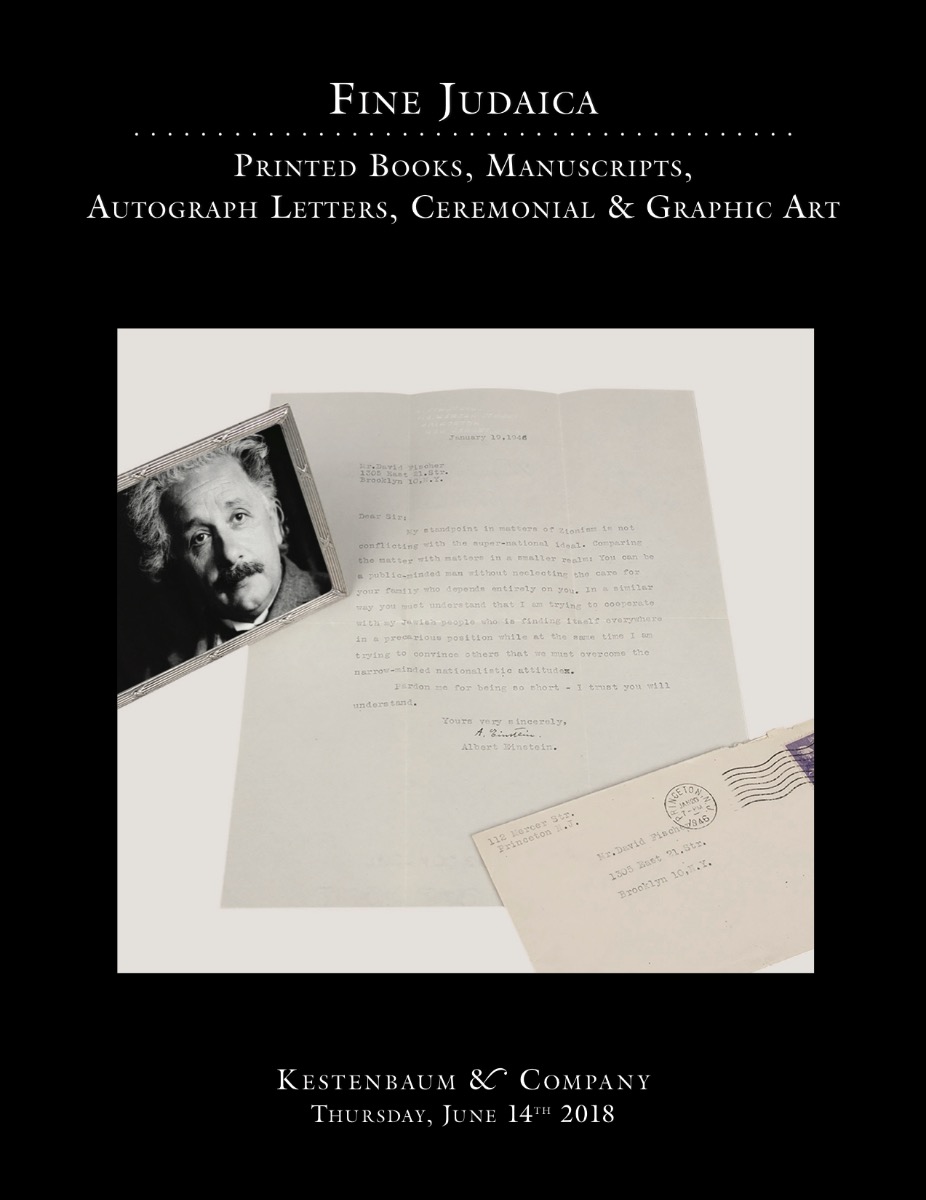Morris J. Raphall.

AUCTION 76 |
Thursday, June 14th,
2018 at 3:00 PM
Fine Judaica: Printed Books, Manuscripts, Autograph Letters, Ceremonial & Graphic Art
Lot 4
(AMERICAN JUDAICA)
Morris J. Raphall.
New York: 27th October 1854
Est: $5,000 - $7,000
<<Displays the close bond between New York’s Ashkenazi Jews with their Ashkenazi brethren in Jerusalem.>>
Rabbi Raphall writes that he received the Appeal from the Chief Rabbi and Sir Moses on behalf of “our suffering brethren in the Holy Land.” Since it was summer, a decision was reached to wait until “the Fall holidays” before reaching out to the synagogue membership. Hence on the second day of Rosh Hashanah Raphall placed the appeal before his congregants “which spoke so strongly to their feelings that I am happy to say the sum of $884.39 was collected.” Raphall then specifies: “As the contributors of this Fund are all without exception Germans and Poles, many of them with near relations among their countrymen in Jerusalem, who of course have a preferable claim on their charity; it is requested that one third of the amount transmitted to you may be distributed solely among the Kollel Aschkenazim Perushim.”
The Kollel Aschkenazim Perushim was set up by disciples of the Vilna Gaon who left Europe at the beginning of the 19th century to settle in the Land of Israel. Rabbi Yisroel of Shklov was one of the leaders of the new community and in the interests of strengthening its economic base, he developed a working relationship with Sir Moses Montefiore and was a beneficiary of his charitable endeavors in Jerusalem.
Morris Jacob Raphall (1798-1868) a native of Sweden, was educated in Denmark, Germany and England. Before arriving in America, he was a prominent figure in Anglo-Jewry and one of its chief exponents to the Christian world, fighting for the political rights of Jews and opposing defamations against Judaism. In 1849 Raphall migrated to the United States to serve as rabbi of the Bnai Jeshurun Congregation in New York, in which capacity he remained until his death. He associated himself with Isaac Leeser and S. M. Isaacs, preaching against the Reform Movement. Raphall’s political influence was evident as he was the first Jew to deliver a prayer in the U.S. Congress (1860). However, his rabbinic career was somewhat charged, when at the height of the debate regarding the question of slavery in the United States, he published his views that slavery (though not in the form it took in the South) was endorsed by the Bible.
